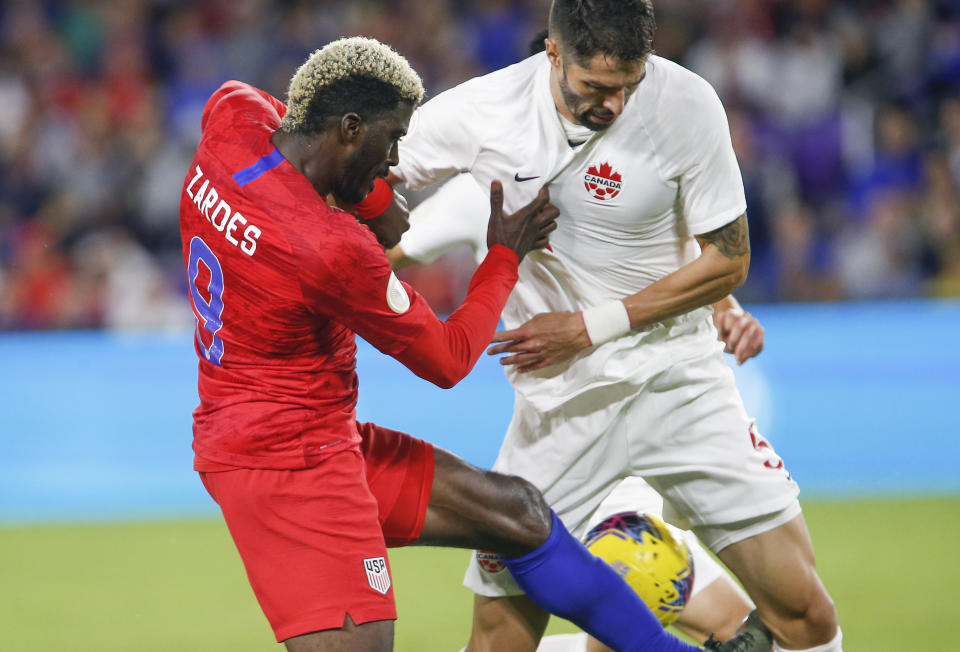Why can't the USMNT distance itself from the brink of crisis?

Being a committed United States men’s national team fan is sort of a big ask these days.
A missed World Cup. A run of six games against arch-rivals Mexico with just a single win, including a painful Gold Cup final loss and a disheveling 3-0 capitulation in September. A falling international reputation and sinking FIFA and ELO rankings. All while El Tri surges under Tata Martino, whom U.S. Soccer never even interviewed for its managerial vacancy a year ago, and who now plainly runs the much stronger program.
Then there's the year-long search for a head coach, the length of which didn't sit well with fans, regardless of the process U.S. Soccer needed to undertake. The outcome and its optics didn't sit well either, considering ultimate pick Gregg Berhalter's brother Jay is the organization's Chief Commercial Officer.
Oh, and let’s not forget about the stubbornly and inexplicably high ticket prices, no matter how much attendances shrink.
But the thing that might just be the hardest to cope with is the confounding inconsistency, the feeling that from one game to the next, there’s no telling at all what you’ll get out of this team. Tuesday’s affair against a dismal Cuba in the Cayman Islands – because of renovations to Cuba’s national stadium – ought to be straightforward, with an American win required to advance to the Final Championship (aka a final four-team group) of the inaugural CONCACAF Nations League in June.
Yet you never quite know with this team anymore. The final game of 2018 World Cup qualifying in Couva, Trinidad and Tobago was supposed to be straightforward as well, after all.

In its last two games, the USMNT lost to Canada for the first time in a generation in a completely deserved 2-0 defeat in Toronto. But then, on Friday, it creamed Les Rouges 4-1 in the rematch in Orlando, in a half-empty MLS stadium where the hardcore fan section was conspicuously barren. Strangely, Berhalter had his best player, Chelsea forward Christian Pulisic, available for the loss but not the win. Ditto for Toronto FC midfielder Michael Bradley and Dusseldorf goalkeeper Zack Steffen.
That followed the pattern of a baffling year so far, which will be bookended by the Cuba game.
The first few matches of Berhalter’s tenure, which began when the year did, were promising enough. But on the eve of the Gold Cup, the Americans lost narrowly to Jamaica and big to Venezuela. A strong start to the tournament followed, only for them to barely beat little Curacao in the quarterfinal. Revenge over Jamaica in the semis didn’t count for a whole lot, as Mexico then prevailed in the aforementioned final.
In September came that deeply concerning loss to Mexico, whereupon the USA bounced back in a tie with Uruguay. A 7-0 hammering of Cuba restored some confidence. And then … Canada.
There is no rhyme or reason to it, no apparent cause for the struggles. Certainly, Berhalter is rebuilding, but then this team has been under construction since late 2017. And yes, the player pool is uneven. There’s perhaps more American talent than ever before in Pulisic, McKennie, Josh Sargent, Tim Weah and Tyler Adams. Yet there’s an alarming lack of depth in every line, and with several generations failing to break into the national team in numbers, there’s a systemic lack of experience in the squad.
Meantime, Berhalter is trying to implement a complex tactical system. It’s ambitious and unusual to try to pull this off at the international level, where tactics tend to boil down to a lowest-common-denominator amalgam of whatever fits the available players and their clubs’ playing styles. Some days it’s worked, but on most it hasn’t.
[ Follow Yahoo Soccer on Twitter and Facebook ]
But none of that explains away the feast-or-famine cadence of the past year – the last two years, really. It seems like it always goes: low point, vindicating win, fresh crisis, faith-restoring victory, repeat. It either all fits together and it runs like clockwork, or the bottom falls out entirely.
So bad have things been that former stars are openly questioning the team’s commitment. “I don't want to say they don't care, but sometimes it looks like they're not that worried if they lose,” Landon Donovan told the Planet Futbol podcast. “And this is your national team. I mean, it hurt bad every time we lost. And it should. It should matter to you. And I didn't get that sense.”
That’s a damning thing to say of a program that once was, if nothing else, committed and well-organized, playing as a whole bigger than the sum of its parts. None of that is true anymore, as the Yanks careen maddeningly between highs and lows.
And while consistency isn’t something you can just decide to have – some teams chase it for many years and never make any progress – there’s a certain base level of performance and effort that can be made. In the rebuilding of the broken relationship with its fans, that might be a good place to start.
Leander Schaerlaeckens is a Yahoo Sports soccer columnist and a sports communication lecturer at Marist College. Follow him on Twitter @LeanderAlphabet.
More from Yahoo Sports:


